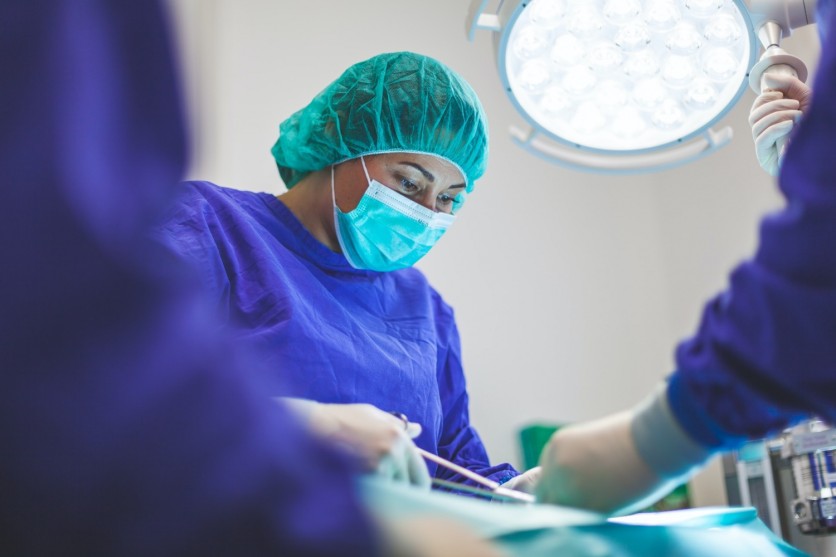
The uniqueness of Indian medical science in terms of cancer treatment in India is that it combines modern advanced methods of diagnosis and treatment (using modern equipment, for example, cyber-knife) and methods of non-traditional teachings, such as Ayurveda and yoga. This approach is considered balanced and holistic because in the fight against disease, especially in oncology, the patient's psychological attitude plays an important role, significantly increasing the chances of healing.
The application of centuries-old experience coupled with modern achievements in medical science allows us to speak confidently about the effectiveness of therapy methods. The survival rate of oncology patients five years after oncology treatment in India is 80%, comparable to the indicators of leading European and American clinics. You can learn more about it at Doctor.Global.
Modern Cancer Treatment Techniques in India
Indian doctors have many years of internship experience leading American and European clinics, practicing the advanced treatment methods they have learned. However, the mentality of doctors from India, who believe that fighting the disease is essential, is the psychological attitude of the patient. Therefore, in addition to high professionalism, they have strongly developed ethical principles, surrounding the patient with comprehensive care and attention. These factors are prioritized when foreign patients choose a place of treatment. In recent years, medical tourism to India has become very popular among patients from America and Europe.
Diagnostic procedures to detect the disease are carried out using advanced techniques:
CT scans;
endoscopy;
advanced blood test;
ULTRASOUND;
MRI;
genetic tests for cancer predisposition;
radioisotope techniques;
biopsy of affected tissues and their cytological examination.
The choice of treatment methodology is determined collegially by several specialized specialists based on the results of their research.
Depending on the type of tumor, the degree of spread of the pathological process, and the overall severity of the patient's condition, the following therapeutic techniques are used in clinics in India:
Surgical Treatment
Endoscopic tumor removal – foreign specialists work according to specific techniques, excising tumors with minimal damage to healthy tissues. An endoscope is brought to the cancer through natural openings or small incisions above the intervention area. This is a unique flexible tube equipped with its own video camera and functional attachment. The doctor delicately excises the tumor without affecting the surrounding healthy tissue.
Ablation – if the tumor is small and has not given metastases, it is used. Malignant cells are destroyed due to the impact of ultra-low or ultra-high temperatures. Electrodes are inserted into the pathological focus, through which an electric current, liquid nitrogen, argon, or a focused laser beam is applied. The malignant cells are killed, and healthy tissue is not affected.
Medical Therapy
Chemotherapy: Cancer treatment in India is often done with chemotherapy. The drug can be administered either systemically intravenously or by intra-arterial therapy. Intravenous systemic administration is indicated in treating leukemia lymphoma and destroying multiple metastases. Targeted therapy is for treating patients with tumors insensitive to standard treatment. This new generation of drugs targets only malignant cells without affecting healthy cells. Monoclonal antibodies represent the active substance in them. This particular class of proteins destroys exclusively malignant cells, both in the primary focus and in metastasis. Also, such drugs have low toxicity, so patients tolerate such therapy.
Radiotherapy
Radiation therapy is used to reduce tumor size, relieve tumor growth symptoms (pain, swelling), destroy metastases, and prepare the patient for bone marrow transplantation. Radiation is performed on modern accelerators equipped with a sophisticated navigation and control system. The therapeutic dose is accumulated only in the tumor without dispersing to surrounding tissues.
Intrathecal therapy – some types of tumors (prostate, uterine body, etc.) can be treated very well with intrathecal low-dose radiotherapy. A carrier capsule with a supply of radioisotopes is inserted into the tissue surrounding the tumor. As they decay, they release ionizing radiation, continuously affecting the tumor cells. During treatment, the patient can go about their usual business without coming to the clinic for sessions.
Clinics in India are successfully treating various types of neuropathologies:
Hemoblastosis – chronic and acute leukemia, lymphoma, lymphogranulomatosis, myelodysplastic syndrome, myeloma disease, and aplastic anemias.
Oncogynecology – carcinomas of the vulva, vagina, cervix, adenocarcinomas of the endometrium and ovaries, sarcomas of the uterus and tubes.
Bone and soft tissue neoplasms – rhabdomyosarcoma, leiomyosarcoma, Ewing's sarcoma, chondrosarcoma, osteosarcoma.
Oncourology – renal neoplasms, carcinomas of the ureter, bladder, urethra, Wilms' tumor.
CNS tumors – glioblastoma, astrocytoma, spinal cord neoplasms, and peripheral nerves.
Gastrointestinal neoplasms – esophageal carcinoma, adenocarcinoma of the stomach and intestine, cholangiocarcinoma of the gallbladder, MALT-lymphoma, liver and pancreatic neoplasms.
Oncodermatology – melanoma, basalioma, leukoplakia, and others.
Lung and mediastinal tumors – non-small cell and small cell lung cancer, bronchial carcinomas, mediastinal tumors.
Endocrine tumors – pituitary, thyroid, adrenal carcinomas, carcinoids, neuroendocrine tumors.
Every year, thousands of medical tourists from all corners of the world choose cancer diagnosis and treatment in India. Patients receive premium-class medical care in the country's clinics, built and equipped in strict compliance with international protocols. A comprehensive examination of modern equipment ensures 100% accuracy of diagnostics, individual selection of a complex treatment scheme, and drawing up an author's rehabilitation program using traditional Ayurvedic practices. Besides, one of the advantages of cancer treatment in India is its production of modern groups of antitumor drugs—targeting drugs based on monoclonal antibodies and small molecules. As a result, the cost of a therapy course is much lower than in Germany or Switzerland. This is confirmed by numerous positive reviews about cancer treatment in India, which grateful patients leave on specialized websites.
ⓒ 2026 TECHTIMES.com All rights reserved. Do not reproduce without permission.





